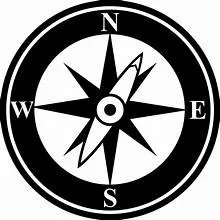Do you ever feel like translation quotes are a bit of a mystery?
The Black Box of Translation Pricing
It's not uncommon to wonder why some prices seem higher than others, especially when it comes to certified Japanese translation services. Let me shed some light on this for you.
The Black Box of Translation Pricing
Let me share a recent experience we had with a new client to illustrate how translation quotes work. Understanding this process can help you make more informed decisions about your own projects.
True Story: Unraveling a Translation Quote
A client was referred to our
Certified Translation Services in Tokyo, Japan, by an existing customer. They needed personal legal documents translated Japanese to English for a loan application in their home country, just like their colleague who made the referral. When they received our quote, they were taken aback.
"Why is this three times more expensive than my colleague's quote?" they exclaimed.
Well, it's essential to consider that the volume (number of documents) they requested translated was three times more than what their colleague needed.
Breaking Down the Translation Quote
Professional translation services follow a standard pricing structure. Let's take a closer look at the key factors that influence the cost:
Languages
Some language combinations are more challenging to translate, like Japanese to English. This can affect the rate. Additionally, supply and demand play a role. English to Japanese translation may be priced lower due to a larger pool of proficient native translators.
Subject Matter
Are you dealing with a simple finance translation, a technically complex one, or a legal finance translation? Just as lawyers and finance professionals command different fees, the complexity of the content influences the price.
Volume
The number of words or pages in your document directly impacts the overall cost. More content means a higher project price.
Delivery Time
Need a lightning-fast turnaround? Understandably, this comes at an additional cost. Translators may need to prioritize your project over others to meet a tight deadline.
Discounts
Translation companies offer various discounts. Don't hesitate to simply...ask!
So, as you can see, translation is in reality a fairly transparent process.
Getting the Best Price for Your Project
Even after receiving a quote, you're not bound to accept it.
It's a good practice to get at least three comparable quotes from different Japanese translation companies. This way, you can be sure you're getting the best value for your specific requirements.
Still feeling unsure about translation pricing? Your feedback is invaluable in refining this article. Let's demystify this together!



